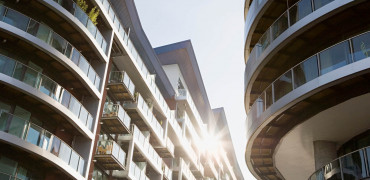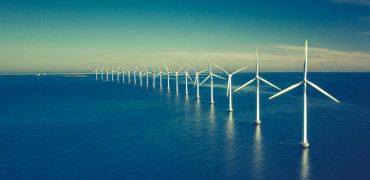The UN's Intergovernmental Panel on Climate Change (IPCC) has produced a new study that examines the causes, effects, and solutions to climate change. The research provides the clearest picture yet of how global warming is harming all living species on the planet today. Housing Association Magazine's Joe Bradbury investigates:
Despite efforts to mitigate the risks, human-caused climate change is creating dangerous and pervasive disturbance in nature and disrupting the lives of billions of people throughout the world.
According to scientists in the latest Intergovernmental Panel on Climate Change (IPCC) report, people and ecosystems least able to cope are being struck the worst.
Commenting on this, Hoesung Lee, Chair of the IPCC, said “This report is a dire warning about the consequences of inaction.
"It shows that climate change is a grave and mounting threat to our wellbeing and a healthy planet. Our actions today will shape how people adapt and nature responds to increasing climate risks.”
With global warming of 1.5°C (2.7°F), the Earth will be forced to face many inescapable climatic threats over the next two decades. Even temporarily exceeding this amount of warming would have significant consequences, some of which will be irreversible.
The risks to civilization, including infrastructure and low-lying coastal towns, will increase exponentially.
Climate change interacts with unsustainable resource usage, urbanisation, social inequalities, losses and damages from extreme occurrences
Immediate action is essential
Increased heatwaves, droughts, and floods are already pushing plants and animals over their tolerance limits, resulting in mass extinctions in species like forests and corals.
These weather extremes are not mere isolated events, they are all happening at the same time, resulting in cascade effects that are becoming more and more difficult to manage.
They have already put millions of people in danger of running out of food and water, particularly in Africa, Asia, Central and South America, on Small Islands and the Arctic.
To minimise further loss of life, biodiversity and infrastructure, rapid adaptation to climate change is essential, as well as making significant reductions in greenhouse gas emissions.
According to the new research, progress on adaptation has been uneven so far, and there are growing gaps between what has been done and what is still required to be done to deal with the rising threats.
...Did you know lower-income people face the greatest disparities?
Hoesung Lee continued: “This report recognizes the interdependence of climate, biodiversity and people and integrates natural, social and economic sciences more strongly than earlier IPCC assessments. It emphasizes the urgency of immediate and more ambitious action to address climate risks. Half measures are no longer an option.”
Nature must be protected
Whilst the message is bleak, adapting to a changing climate is still possible. This paper offers new insights into nature's ability to improve people's lives as well as mitigate climate dangers.
“Healthy ecosystems are more resilient to climate change and provide life-critical services such as food and clean water”, said IPCC Working Group II Co-Chair Hans-Otto Pörtner.
“By restoring degraded ecosystems and effectively and equitably conserving 30-50% of Earth’s land, freshwater and ocean habitats, society can benefit from nature’s capacity to absorb and store carbon, and we can accelerate progress towards sustainable development, but adequate finance and political support are essential.”
Climate change, according to scientists, interacts with global trends like unsustainable resource usage, urbanisation, social inequalities, losses and damages from extreme occurrences and a pandemic, threatening future development.
The impact of cities and their potential to help
This research examines the implications, hazards and response to climate change in cities, which currently house more than half of the world's population.
Heatwaves, storms, droughts, and flooding, as well as slow-onset impacts like sea level rise, are wreaking havoc on people's health, lives, and livelihoods, as well as property and key infrastructure, including energy and transportation networks.
“Together, growing urbanization and climate change create complex risks, especially for those cities that already experience poorly planned urban growth, high levels of poverty and unemployment, and a lack of basic services,” IPCC Working Group II Co-Chair Debra Roberts said.
“But cities also provide opportunities for climate action – green buildings, reliable supplies of clean water and renewable energy, and sustainable transport systems that connect urban and rural areas can all lead to a more inclusive, fairer society.”
A shrinking window of opportunity for action
Climate Resilient Development is already difficult at current warming levels.
If global warming exceeds 1.5°C, it will become even more limited.
Should global warming exceed 2°C, it will become impossible in some areas.
This important conclusion emphasises the need for immediate climate action, that prioritises fairness and justice.
Joe Bradbury Digital editor at Housing Association magazine




